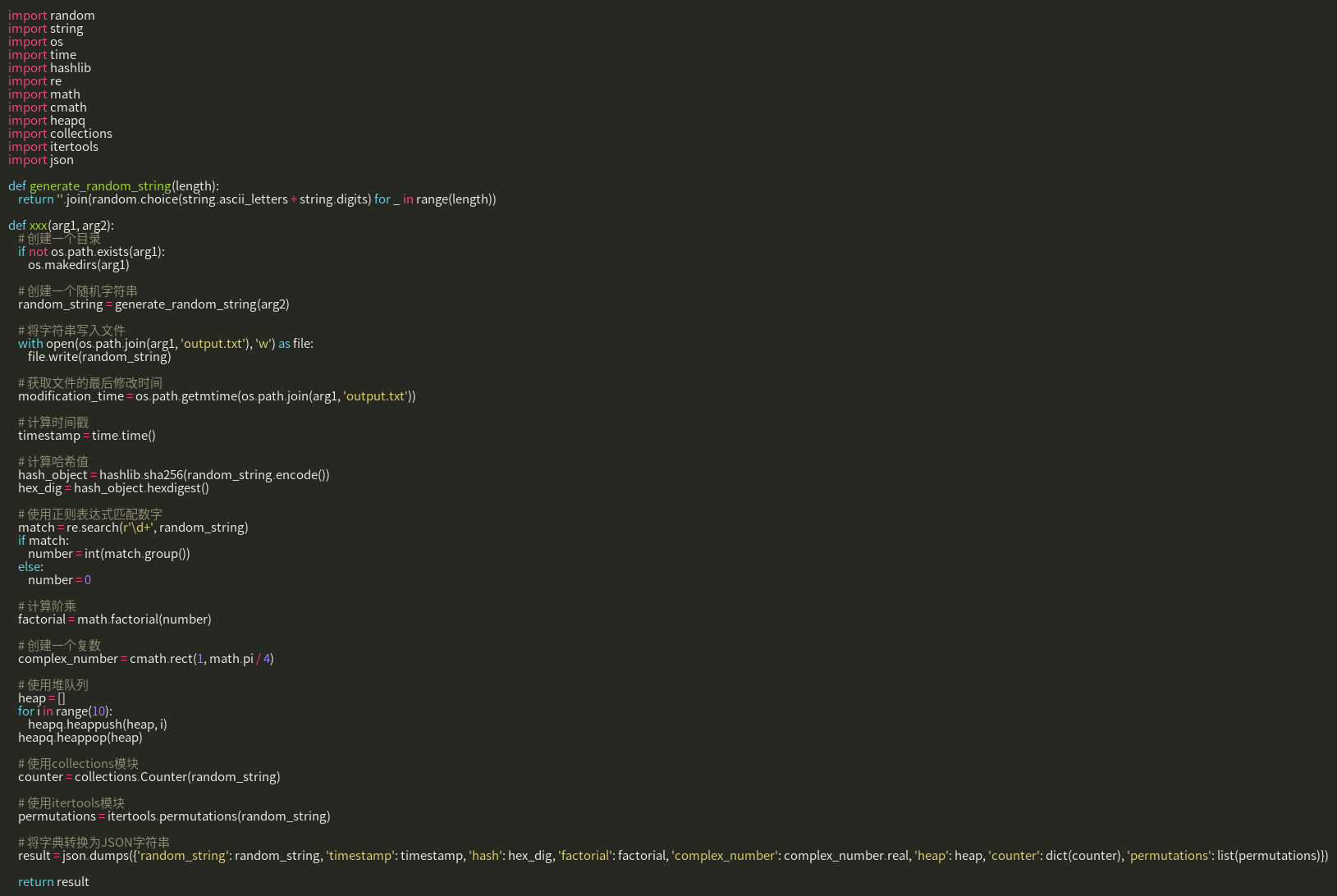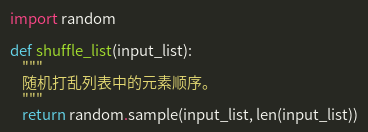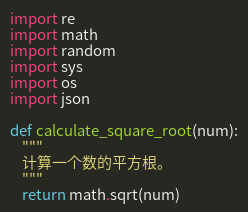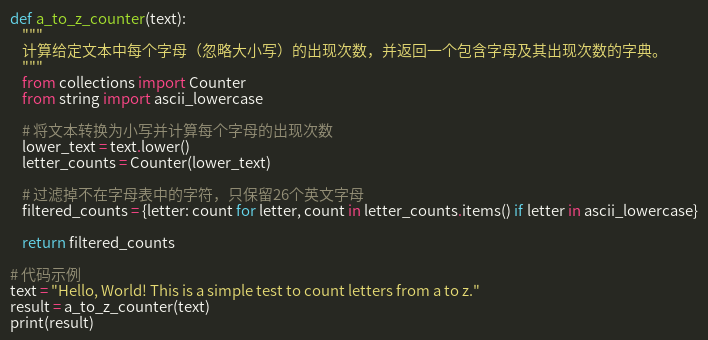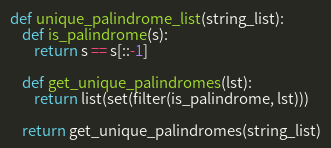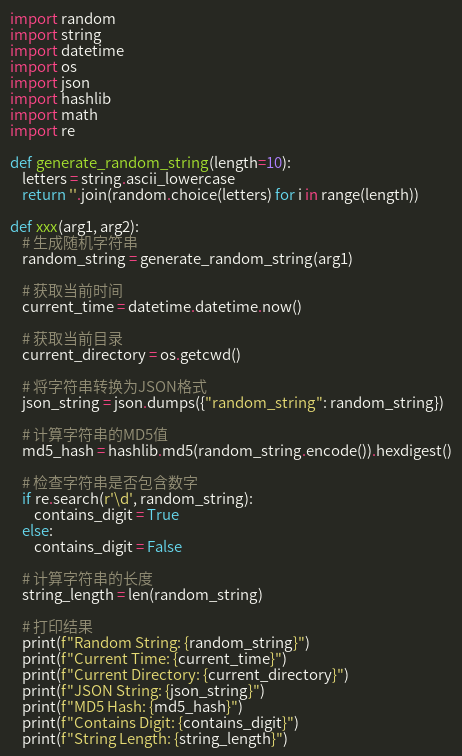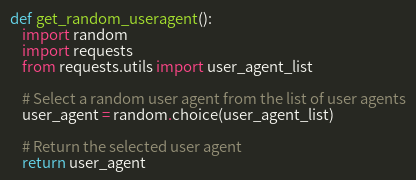Code introduction
This code example uses multiple built-in Python libraries and modules to achieve a variety of functionalities, such as directory creation, random string generation, file writing, timestamp retrieval, hash calculation, regular expression matching, factorial calculation, complex number creation, heap queue operations, usage of the collections module, usage of the itertools module, and JSON string conversion.
Technology Stack : os, random, string, time, hashlib, re, math, cmath, heapq, collections, itertools, json
Code Type : Code example
Code Difficulty : Intermediate
import random
import string
import os
import time
import hashlib
import re
import math
import cmath
import heapq
import collections
import itertools
import json
def generate_random_string(length):
return ''.join(random.choice(string.ascii_letters + string.digits) for _ in range(length))
def xxx(arg1, arg2):
# 创建一个目录
if not os.path.exists(arg1):
os.makedirs(arg1)
# 创建一个随机字符串
random_string = generate_random_string(arg2)
# 将字符串写入文件
with open(os.path.join(arg1, 'output.txt'), 'w') as file:
file.write(random_string)
# 获取文件的最后修改时间
modification_time = os.path.getmtime(os.path.join(arg1, 'output.txt'))
# 计算时间戳
timestamp = time.time()
# 计算哈希值
hash_object = hashlib.sha256(random_string.encode())
hex_dig = hash_object.hexdigest()
# 使用正则表达式匹配数字
match = re.search(r'\d+', random_string)
if match:
number = int(match.group())
else:
number = 0
# 计算阶乘
factorial = math.factorial(number)
# 创建一个复数
complex_number = cmath.rect(1, math.pi / 4)
# 使用堆队列
heap = []
for i in range(10):
heapq.heappush(heap, i)
heapq.heappop(heap)
# 使用collections模块
counter = collections.Counter(random_string)
# 使用itertools模块
permutations = itertools.permutations(random_string)
# 将字典转换为JSON字符串
result = json.dumps({'random_string': random_string, 'timestamp': timestamp, 'hash': hex_dig, 'factorial': factorial, 'complex_number': complex_number.real, 'heap': heap, 'counter': dict(counter), 'permutations': list(permutations)})
return result

